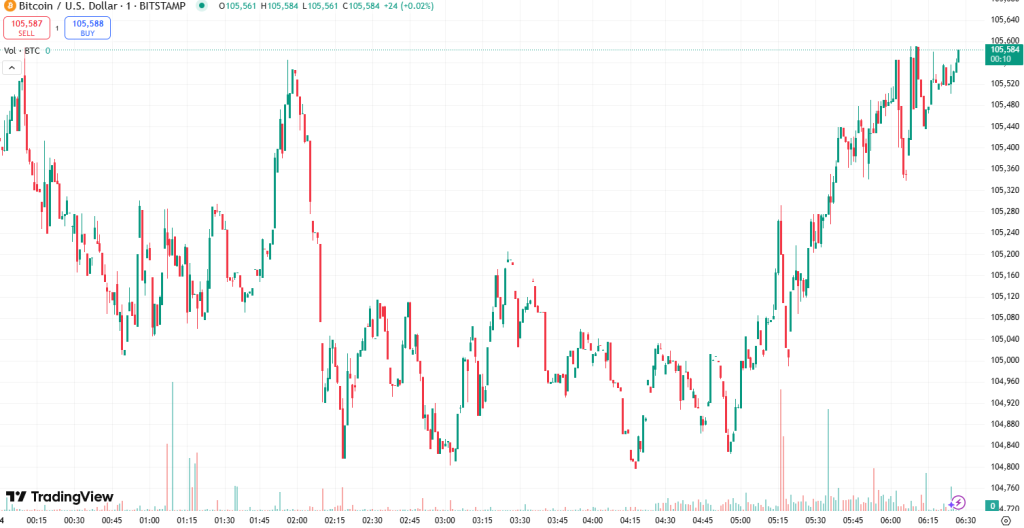“My aim for INSEAD is to ensure participants leave with an incredible openness so they can … [+]
INSEAD
In less than a year, conversations on how AI would replace or empower us have become less speculative and more experiential. Talk of how it threatens the jobs of millions has been contrasted with an entire new industry of Prompt Engineers, Innovation Evangelists and even Algorithm Alchemists – all real roles.
Many remain wary, and not just of these snazzy job titles. AI could potentially disrupt the labour market, create ethical dilemmas, and pose security risks. Already in question is the intellectual property of AI-generated content. Without such understanding or knowledge, hesitancy has been the biggest chain preventing greater businesses engagement with AI, with the unknown as its hindering weight.
“Fear tends to freeze people”, Professor Peter Zemsky from INSEAD says, himself a renowned AI enthusiast and tech aficionado.
The Deputy Dean of INSEAD first joined the faculty of the “Business School for the World” as an Assistant Professor of Strategy back in 1994, after completing his PhD at Stanford. In 2013, Zemsky became Dean of Innovation, responsible for overseeing key strategic initiatives including the development of the school’s Abu Dhabi campus and opening of the San Francisco Hub for Business Innovation, and the development of new digital teaching methods.
“I’m a big believer in focusing on the opportunities – I like to think about them creatively,” he says with an enthusiasm that thousands of INSEAD staff, faculty and graduates will instantly recognize. “Does it mean to prepare for an AI world? Who knows. What we know is, if you dig into the technology, the implications are already large, and are just getting bigger.”
“What’s happened with AI has just continued to fuel that excitement for me, as an academic, and it leads to lots of issues about how businesses actually get the value out of it”, he continues. Not being fearful of technology does not imply ignoring the potential negative impacts on society. “We have to, there’s no excuse anymore not to be trying to anticipate that.”
As a core member of INSEAD’s leadership team, Peter’s passion for technology has contributed to the evolution of programs such as the MBA, which currently #2 in the FT’s Global MBA Ranking 2023, ahead of Harvard Business School and Peter’s own alma mater, Stanford. While finance courses held higher status in the past, today he finds a surge of interest in AI, web 3.0, crypto, and sustainability-related courses.
“My aim for INSEAD is to ensure participants leave with an incredible openness so they can understand what’s coming from technology, and how they can bring it together to actually create the value.” He also singles out sustainability which the school has embedded in all 14 of its core courses of the MBA curriculum and introduce a mandatory capstone challenging students to integrate sustainability learnings across all management areas. “As we are forced to recreate organizations or systems – and in some ways the whole of society – are we constructing a place that we want to live and work or not?”
Tech for the Future
For Peter Zemsky, preparing for an AI-centric future means equipping students with the ability to understand and leverage technology within which ever field or industry they chose to go into. His emphasis on openness references INSEAD providing their students with a framework to balance technology with business acumen, adding that “what we do matters, and we have to do it responsibly.”
Faced with real-world difficulties and opportunities during their studies, reflection is a key component of teaching at INSEAD, encouraging personal growth among their students. “By planting the seeds, we facilitate the space for people to better question: ‘What am I learning about myself? What am I leaving behind?’ Hopefully that becomes habit, part of their path and part of their learning going forward.”
Growth is not an individual task, however. Zemsky insists that to really be successful, you must work through other people, and engage with them. And this includes with customers and business stakeholders. “Starting with the customer and understanding their pain points is well known but super important. We need to keep working on this aspect of digital transformation to create meaningful value.”
“Partnering is crucial in the digital era. It enables organizations to move faster, leverage … [+]
OLIVER CLARKE
He also points to a combination of agility and growth that drives success. “Traditional organizations often overlook the importance of scaling. Experimentation and proof of concept are essential, but to truly capitalize on digital transformation, scaling is equally critical.” INSEAD itself continues to incorporate new technology as part of its teaching, including a VR Immersive learning initiative that aims to create a new way of learning for management and business.
“Partnering is crucial in the digital era,” the Deputy Dean continues. “It enables organizations to move faster, leverage external expertise, and navigate the learning race effectively. Building strong relationships and collaborations can open doors to new opportunities and drive sustainable growth.”
Recognizing the rapid pace of change, Zemsky believes that organizations must prioritise collaboration and strategic partnerships. In a highly interconnected environment, these relationships allow businesses to accelerate their learning, stay ahead of the competition, and harness collective knowledge and resources. “Business is a learning race. And you can’t just learn alone….by partnering with the right people, you will learn faster.”
This passion for partnerships and collaboration is in good hands at INSEAD as Peter Zemsky now sets off on a sabbatical after 28 years of positive impact. The only thing that hasn’t changed much in that time is his musical taste. A lover of music, he used to flood the dorms during his college days at U Penn and then during his doctorate at Stanford with the vinyl and CD tracks by artists like Elvis Costello and rock band Squeeze. “I still listen to the same music on Spotify Playlists… I love their algorithm.”
Credit: Source link











